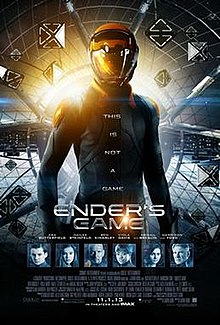★★

I like these books overall, and I really have enjoyed reading this series. But, there was one thing in this book that really turned me off.
In every book of the series, the author consistently praises every single book mentioned and puts on a pedestal every author. In this book, even Cassidy, the reluctant reader, loves
Jane Eyre. But, for some unknown reason, the author totally pans
The Scarlet Letter. She could have simply not even mentioned the book, but seems to have gone out of her way to discredit it. Not a single character likes it - not the daughters, not the mothers, and not even any of their counterparts in Wyoming. What's the deal?! What does the author have against
The Scarlet Letter? Both
Jane Eyre and
The Scarlet Letter were required reading in my high school, and as I recall, neither was especially well-received, but
The Scarlet Letter was probably the less unpopular of the two simply because it had an edginess to it. Does the author object to the fact that rather than the more innocent variety of romance as seen in other book club books,
The Scarlet Letter deals with the more mature topic of adultery? Was the author trying to make some kind of morality statement?! Hester Prynne may not be as proper as the other female heroines the club has met, but she is certainly a strong character - something I would think the book club members would appreciate!
The Scarlett Letter is even oftentimes considered an early feminist piece, certainly worthy reading for modern young women and appropriate content for students studying classic American literature, despite the author's grievance. I seriously wondered why the author would so uncharacteristically reject such an important piece of writing - and then I realized that all other book club books were written by women! Does the author have something against male writers in general, or against Nathaniel Hawthorne in particular? Whatever. I think her blanket disdain for
The Scarlet Letter was unfair - the characters never even tried to justify their dislike of the book - and out of place for a book series that not only celebrates literature in general but specifically focuses on strong women in literature. For a series that is supposed to encourage young readers to discover strong female characters in literature, the author really does a disservice by turning young audience off from
The Scarlet Letter.
Okay, rant over. Now about the book itself...
After six books with variations on the same themes, I think I just got tired of the Mother-Daughter Book Club formula. Once again, the first adjective that comes to mind in describing this book is "over-the-top". I could accept a circle of friends that included a former supermodel, a former soap opera star, and a millionaire software entrepreneur. But now we have a group of high school sophomores that include a professional fashion designer, a published author and mayoral campaign manager, a nationally competitive singer, and a player on the nation's top girls hockey team!? Who would have thought that in the end, the most relatable and down-to-earth character would be Becca Chadwick?!
Once again, one of the primary conflicts stems from a new girl in town with whom the girls do not get along. Once again, the girls deal with their social frustrations by engaging in a mean-spirited prank. It's lame that the girls in this series pine for their first kiss and wonder what their boyfriends are up to instead of just initiating a kiss themselves or simply talking to their boyfriends. It's lame that the girls think second cousins have no right to be friends, even though it's already been established that Annabelle and Tristan have a close relationship.
I have to admit, though, I liked the way the book ended with Megan's sentimental round-up of Mother-Daughter Book Club moments. Despite all that I've complained about above, I think the book - and presumably the series - ended on a high note. There is a sense of finality at the end of this book, though I had originally expected the series to take the girls all the way through senior year in high school. But like I said, I think all the familiar themes have been exhausted, so if this is the last book in the series, that's just fine with me.
I should note, also, that Isabelle didn't read this book. She lost interest and didn't finish
Home for the Holidays despite the fact that they featured the
Betsy-Tacy books, some of which she has read. I think the book club girls just finally got too old, and she couldn't relate to the characters anymore.
 I can never view a movie based on a book except through the lens of the book itself. Probably that's not fair, but here goes...
I can never view a movie based on a book except through the lens of the book itself. Probably that's not fair, but here goes...





